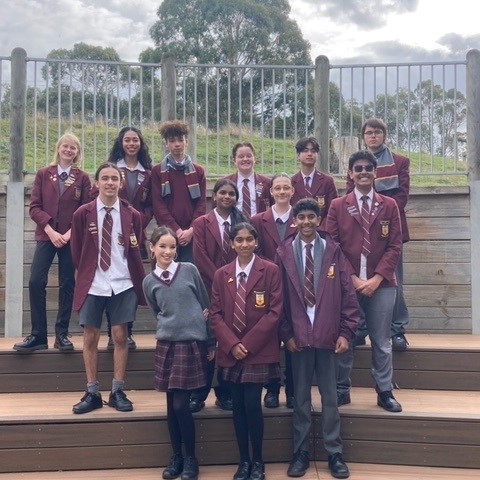PUBLIC SPEAKING
Public Speaking was a very popular SIS event this year with eager students from seven schools putting their arguments forward at Flinders College Tyabb. Students amazed the adjudicators with their insightful prepared speeches on current issues, including:
- Junk Food in Schools (Junior)
- Mobile Phones in schools (Intermediate)
- Artificial Intelligence in academic assessment (Intermediate)
- Youth vaping (Senior)
- “Fast Fashion” (Senior)
The event was a tight contest resulting as follows:
1st place - Flinders Christian Community College Tyabb
2nd Place – St. Peters College Cranbourne
3rd Place – St. Francis Xavier College

1st Place Public Speaking team – Flinders C.C. Tyabb


